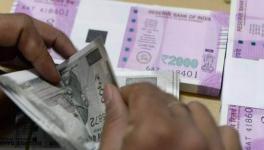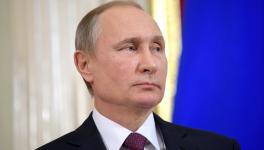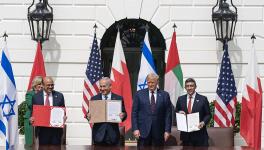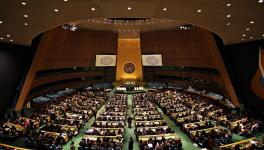Tax Havens and Global Capital's Heaven
Most people think that if tax havens are used, then the money also stays there. This is a misunderstanding of the role that tax havens play in the global economy. The use of Panama based companies set up by Mossack Fonseca -- in the news as Panama Papers -- does not mean the money remains in Panama. The rich use Panama to hide who really owns the money. But the money is siphoned back into the banks – US, UK Swiss and other global banks. It is only a paper transaction that is done in Panama; the money suitably anonymised and whitewashed, remains in the hands of global finance capital and is held in metropolitan centres.
Tax havens have two functions: one is low taxes, the other is to hide who really owns the money. It is the combination of the two that brings the tax havens to the core of the global financial system. In a 2013 book Tax Havens and How Globalisation Really Works, the authors say, “Our principal contention is that most accepted ideas about tax havens are false. Tax havens are not working on the margins of the world economy, but are an integral part of modern business practice … About 50% of all international banking lending and 30% of the world’s stock of Foreign Direct Investment (FDI) are registered in these jurisdictions.” Tax havens are not some anomaly under capitalism, they are integral to capitalism today and at the heart of global finance capital.
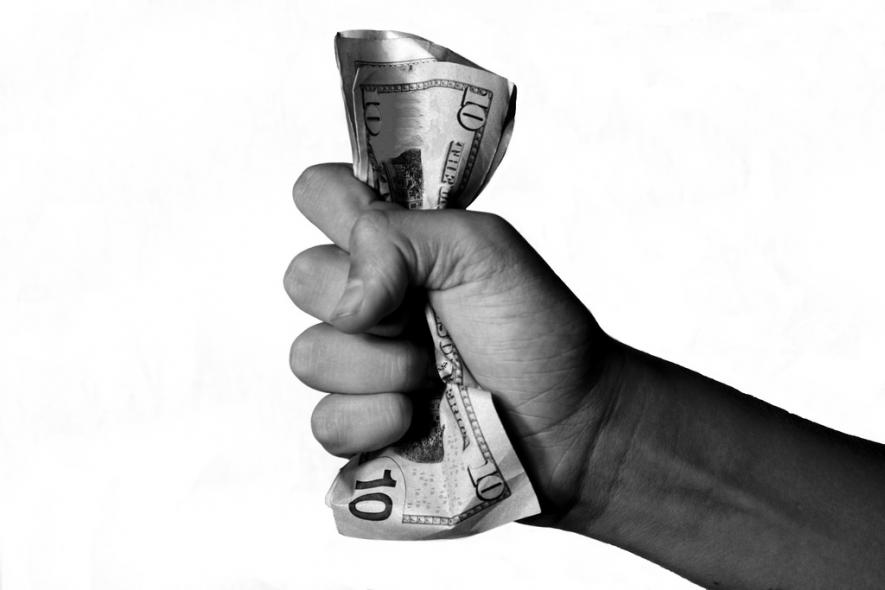
Image Courtesy: flickr.com
Companies such as Apple, Google, Facebook use a complex set of legal fictions and shell companies in tax havens to pay virtually no tax in either the US where their headquarters are located, or in the countries in which they do business. Bloomberg reported that Google paid a paltry 2.4% in tax on its global revenues. This is where tax havens are so useful, as their global profits are washed through a complex web of transactions resulting in low or no taxes in countries from which the income originates. Apple has more than $200 billion in cash reserves, and is sitting on a pile of cash that is more than the GDP of most countries in the world. Other major US tech companies have also cash piles that are the envy of even major countries. But all this money is not in vaults under their headquarters in Silicon Valley: they are held in banks, in securities, and other financial instruments. Apple uses this money to run the world's biggest hedge fund in Reno, Nevada.
Developing countries lose huge amounts through transfer pricing and tax dodges of the global multinational companies. Nicholas Shaxson, in his book Treasure Islands: Tax Havens and the Men who Stole the World writes, “About two-thirds of global cross-border world trade happens inside multinational corporations. Developing countries lose an estimated $ 160 billion each year just to corporate trade mispricing of this kind.”
Apart from lowering tax, tax havens hide who really owns the money. They incorporate companies that have dummy directors, a dummy address, with the real owners and real beneficiaries hidden under a veil of secrecy. This could be for laundering criminal money, say money of Mexican or Colombian drug lords, that are then whitewashed through such tax havens into the coffers of HSBC, Citibank and other financial institutions. Or, as we learn from the Panama Papers, the money squirrelled away by political figures or bureaucrats from bribes and kick-backs. This was initially made famous by the Swiss banks with their secrecy rules, but now available in some 80 countries identified as tax havens.
Tax havens are also used for bringing back black money as white. This is called “round tripping”. Black money, accumulated either domestically or abroad, are brought through shell companies in tax havens into countries such as China and India. For China, the route is either Hong Kong or Macau. For India, it is Mauritius or Singapore which together account for more than 50% of the Foreign Direct Investments (FDI) into the country. The shell companies in these tax havens through which investments are routed, also pay no income tax in India; under the Double Taxation Avoidance Treaty that India has with Mauritius, such investments are exempt from income tax in India. If we unravel the real owners – they would be familiar names in the business and in the political world. The left and others have been asking for plugging the Mauritius route, something that both the BJP and the Congress have refused to do.
Commenting on the intimate relations between global finance capital and criminal money, Antonio Maria Costa, formerly the Executive Director of the United Nations Office on Drugs and Crime (UNODC) in an interview says, “The penetration of the financial sector by criminal money has been so widespread that it would probably be more correct to say that it was not the mafia trying to penetrate the banking system, but it was the banking sector which was actively looking for capital—including criminal money...”
Once the incomes are routed through such tax havens, they can be brought back into circulation. Lawyers and accountants create complex legal instruments so that their clients pay no or very low taxes. They call this tax planning. All the major accounting firms in the world including the big four – Deloitte, PricewaterhouseCoopers (PwC), Ernst & Young and KPMG, all familiar names in India -- are deeply involved in such tax “planning”.
For those who are fixated on corruption and illegal money, the difference between tax planning and tax fraud is simply having “good” lawyers and accountants.
Take the example of the Indians in the Panama Papers. Half of them have said that they are non-Resident Indians and therefore not subject to Indian tax laws. They therefore do not have to report that they have set up companies in Panama and are receiving incomes through Panama. They had good lawyers who told them how to dodge Indian and UK tax laws. In the UK, if you claim that you are domiciled there, but have an intention of returning to your home country, then you pay no tax there either. Some, without the benefit of such “good” advice, have violated Indian laws by setting up such off-shore companies and can be proceeded against. Whether the Modi government will do so or not, is another matter. The past record of The Manmohan Singh or the Modi government in the two other leaks – Luxembourg Leaks and the Swiss Leaks, both exposed by ICIJ, the body handling the Panama Papers as well – does not build much confidence that there is a will to crack down on the criminal fraud of the rich.
Disclaimer: The views expressed here are the author's personal views, and do not necessarily represent the views of Newsclick
Get the latest reports & analysis with people's perspective on Protests, movements & deep analytical videos, discussions of the current affairs in your Telegram app. Subscribe to NewsClick's Telegram channel & get Real-Time updates on stories, as they get published on our website.











